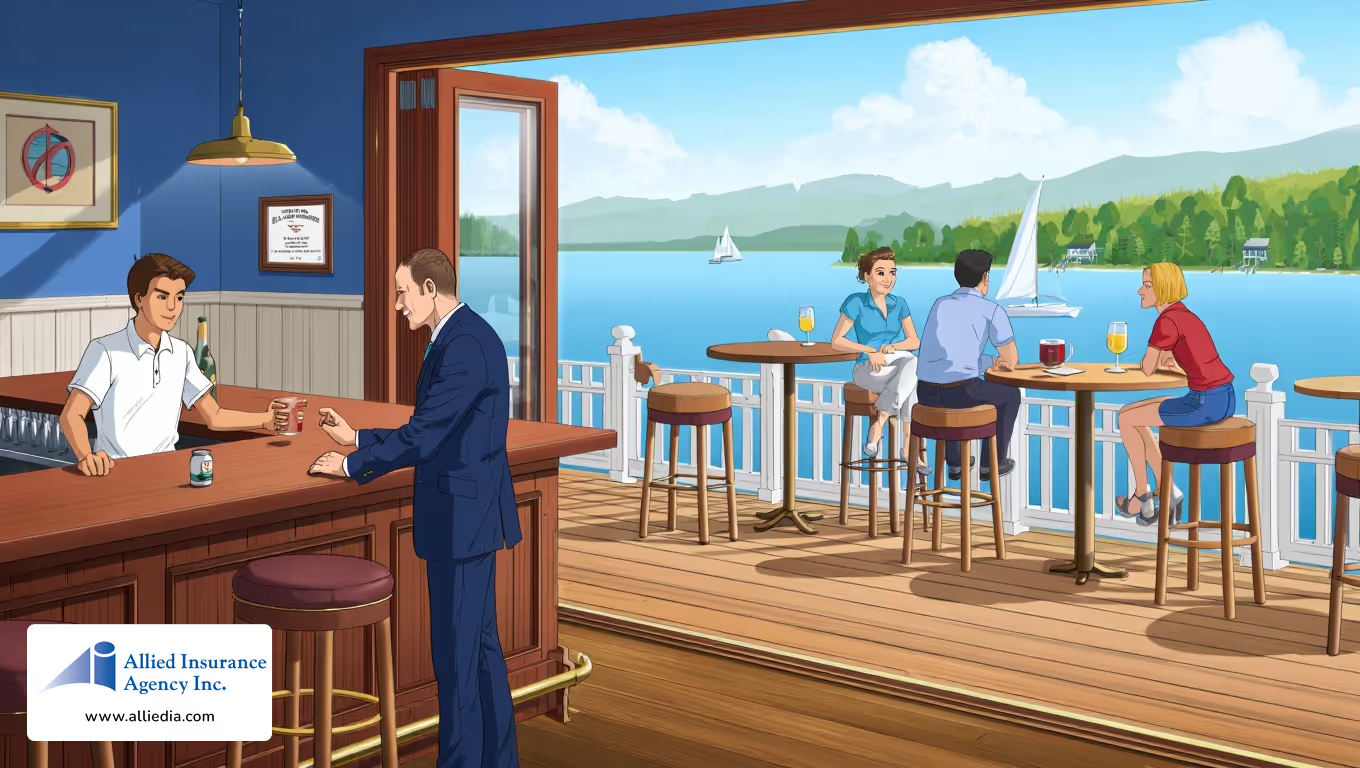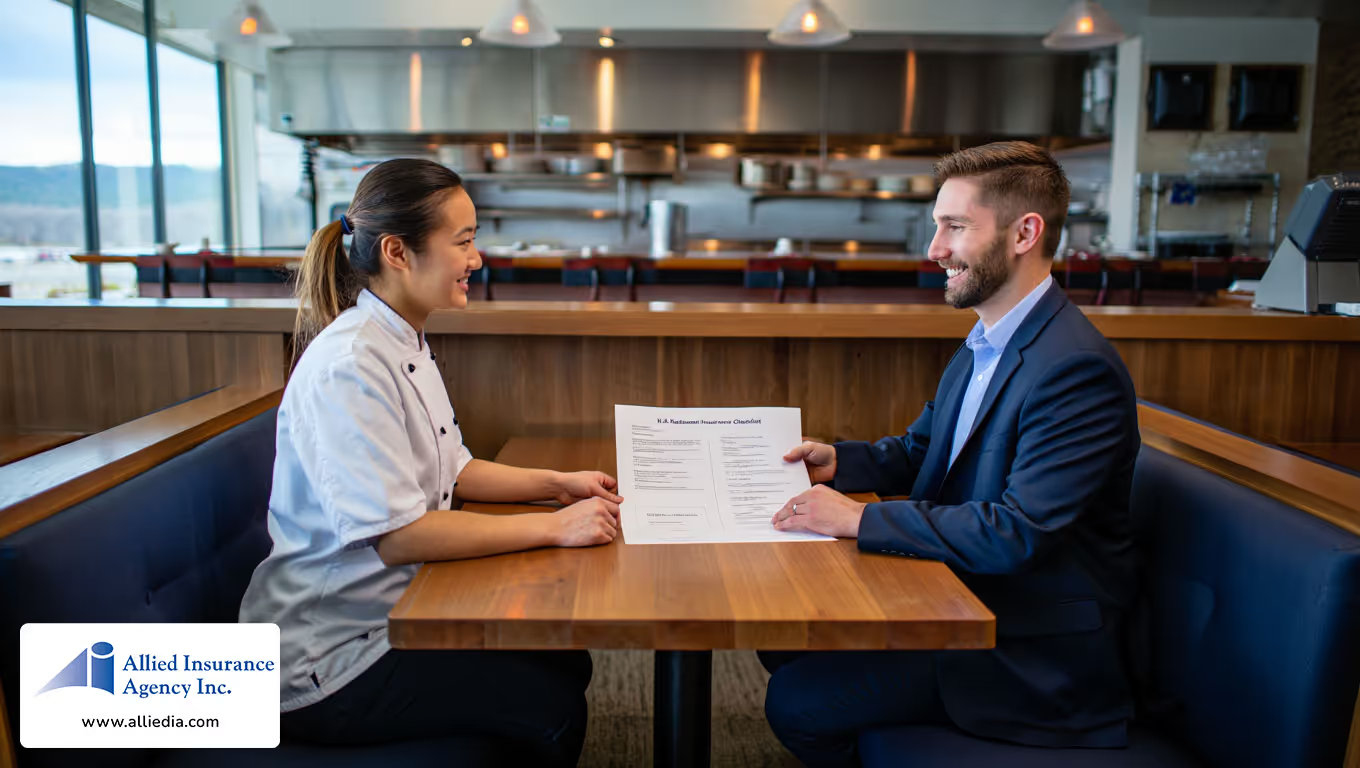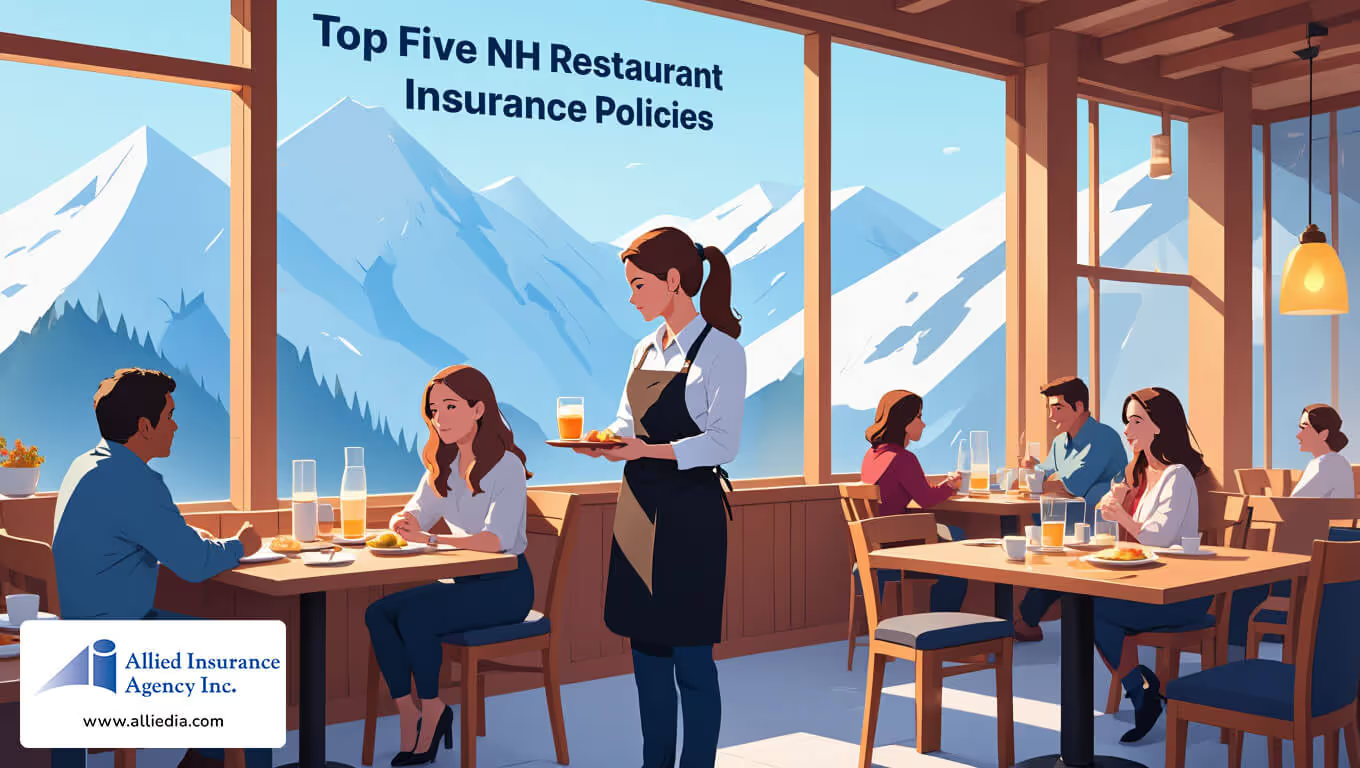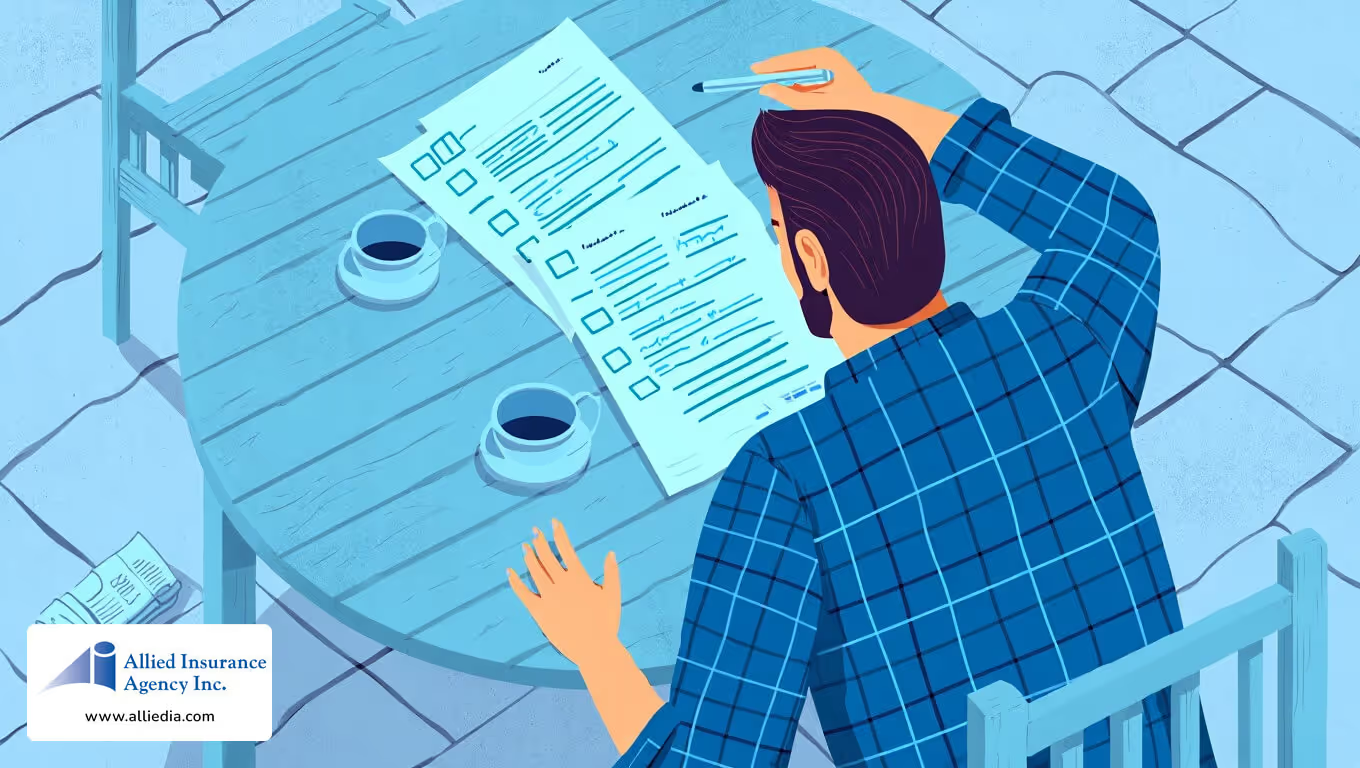
Avoid These Common Restaurant Insurance Mistakes in New Hampshire
In the Granite State, small enterprises form the backbone of the local economy. Over 136,000 of these ventures operate here, with dining establishments playing a vital role. For these proprietors, safeguarding their investment is not just smart—it's essential for survival.
A single oversight in a policy can have devastating consequences. An incident like a kitchen fire in Concord or a liability claim in Bow can wipe out years of hard work in an instant. Many owners unknowingly make critical errors that leave their operations exposed to significant financial risk.
New Hampshire enforces strict legal requirements, particularly for workers' compensation. Non-compliance penalties can exceed $10,000 per day. Understanding both general principles and state-specific regulations is key to proper protection.
This guide outlines frequent pitfalls to help dining establishment owners across the state secure their future. It draws from real-world examples to provide actionable insights.
Key Takeaways
- Small businesses, including dining establishments, dominate New Hampshire's economy, making proper coverage critical.
- A single policy error can lead to severe financial loss from events like fires or liability claims.
- Many proprietors are unaware of the specific gaps in their commercial coverage.
- State law mandates certain protections, with heavy fines for non-compliance.
- Navigating both general and Granite State-specific rules is necessary for comprehensive safety.
- Proactive review of a policy is the best defense against unforeseen disasters.
Understanding Restaurant Insurance Mistakes New Hampshire
Commercial coverage gaps often stem from fundamental misunderstandings about policy requirements. These oversights can leave dining establishments vulnerable to significant financial exposure.
Defining Common Coverage Errors
Coverage errors represent any deficiencies in protection plans that fail to address the full range of operational risks. Common issues include undervaluing property, selecting insufficient liability limits, and choosing inappropriate deductibles.
Many proprietors base coverage on outdated valuations or purchase prices. Construction expenses, equipment values, and inventory costs typically increase over time. Without regular updates, initial coverage amounts become inadequate.
Why These Mistakes Can Hurt Your Business
These errors prove particularly damaging to small businesses with limited financial reserves. When incidents occur, inadequate protection can lead to substantial out-of-pocket expenses.
The consequences extend beyond immediate financial losses. They may include potential closure, legal liabilities, and inability to recover from disasters. Proper restaurant liability coverage forms a critical component of comprehensive protection strategies.
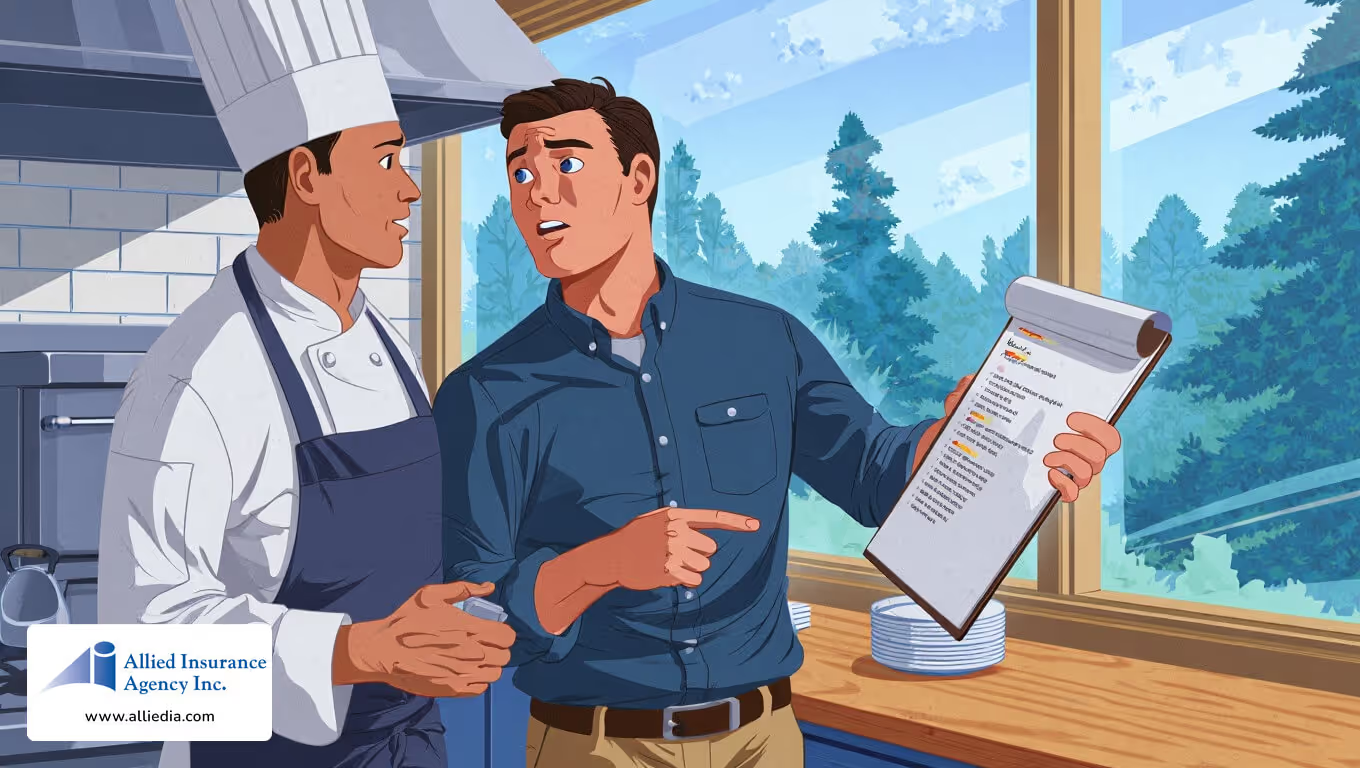
Underinsuring and Coverage Gaps in NH Restaurants
Property coverage deficiencies represent one of the most common financial vulnerabilities for eateries. Many proprietors base their protection on original purchase prices or outdated estimates that fail to reflect current market conditions.
Risks of Outdated Valuations
Construction costs and equipment values have risen significantly in recent years. This leaves many establishments in Concord and Bow underinsured by 20-30% or more.
When a loss occurs, inadequate property protection forces owners to cover substantial out-of-pocket expenses. A Concord diner received $250,000 for a kitchen fire claim in 2023, demonstrating the importance of proper valuation.
Challenges with Replacement Cost vs. Actual Cash Value
The critical difference between these coverage types affects payout amounts significantly. Replacement cost pays for new items of similar quality, while actual cash value deducts depreciation.
Commercial kitchen appliances depreciate quickly. Actual cash value policies may pay only a fraction of what replacement would cost. In Hooksett, property policies average $45 monthly per $100,000 insured.
Proper insurance also covers tenant improvements, as seen with an $18,000 remodel payout in Bow. Annual valuations help businesses maintain adequate insurance limits against inflation and upgrades.
Contact Allied Insurance Agency today for a free N.H. restaurant insurance quote.
Liability Exposures and Deductible Missteps
Many dining establishment owners focus on obvious risks but miss critical liability exposures. Standard protection often leaves gaps that can lead to significant financial strain.
These overlooked areas require careful attention to ensure comprehensive coverage.
Identifying Hidden Liability Risks
Not all liability falls under standard general liability policies. Cyber threats, employment practices claims, and professional liability exposures need separate attention.
Slip-and-fall incidents dominate claims statewide. A Manchester café paid $43,000 after a customer fractured their wrist.
Foodborne illness allegations and allergic reactions can trigger costly lawsuits. The average general liability claim for injuries exceeds $1.2 million in the state.
Liquor liability represents another critical exposure. Even beer and wine licenses require specialized coverage.
Selecting a Deductible That Works
Choosing high deductibles to reduce premiums can backfire dramatically. If the deductible exceeds what the business can comfortably pay, owners might delay necessary repairs.
This approach jeopardizes recovery after incidents. The right deductible balances premium affordability with actual financial capacity.
Proper selection ensures establishments can handle out-of-pocket expenses when claims occur. This prevents additional financial stress during already challenging times.
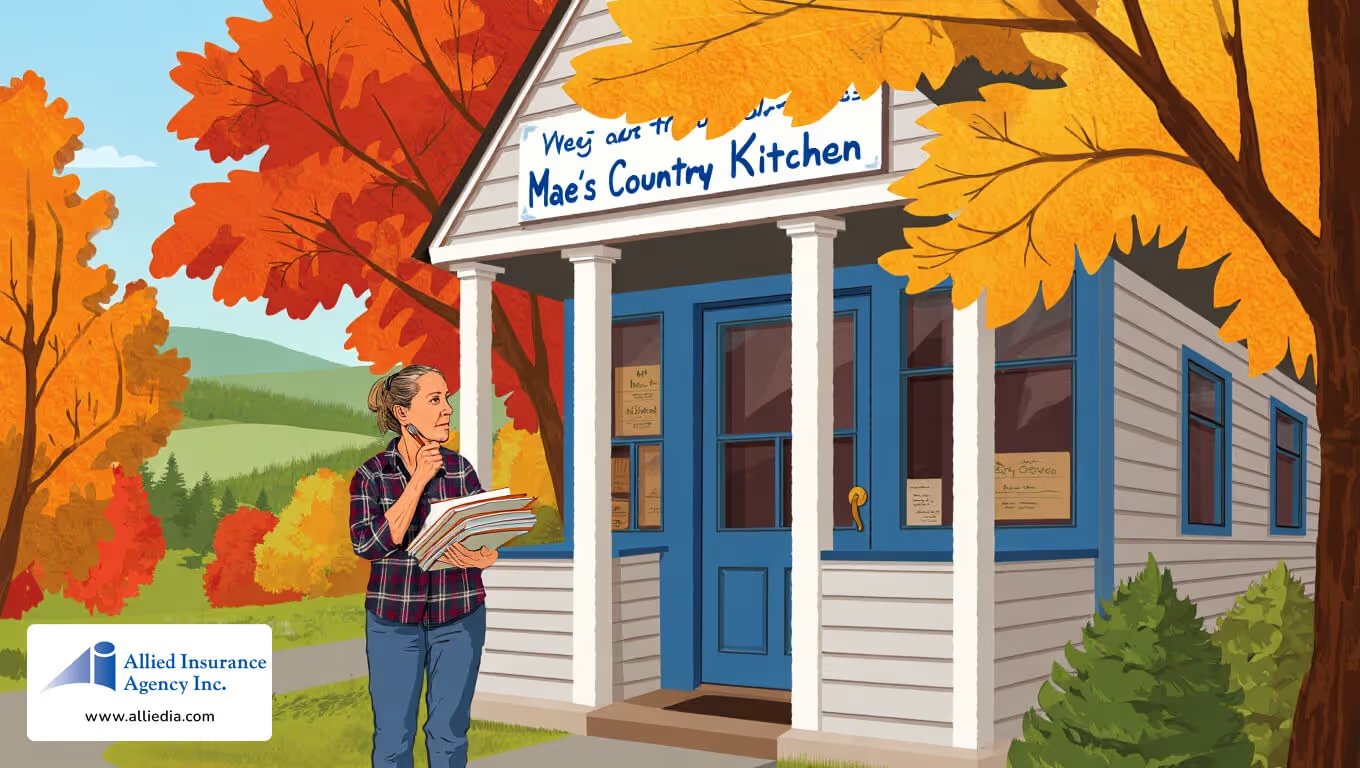
Mitigating Local and Seasonal Risks
The unique climate and regulatory landscape of this region create specific vulnerabilities for commercial operations. Understanding these location-based exposures is crucial for adequate protection.
Contact Allied Insurance Agency today for a free N.H. restaurant insurance quote.
Weather Extremes and Their Impact
New England's six-month winter brings substantial property risks. Ice dams and frozen pipes represent common threats that can cause significant damage.
A Concord eatery faced $65,000 in water damage when sprinkler lines froze. This case demonstrates the financial impact of inadequate winter protection.
Summer tourism boosts sales by 300% in many areas. Policies need adjustable limits to accommodate these seasonal fluctuations properly.
Weatherproofing upgrades can qualify establishments for approximately 14% premium discounts. This makes risk mitigation both protective and cost-effective.
Local Ordinances and Unique Regional Hazards
Municipal regulations vary significantly across the state. Concord enforces strict fire code updates requiring annual inspections for policy renewals.
Bow's historic district rules complicate renovations. Special property endorsements cover tenant improvements meeting preservation standards.
Hooksett's updated floodplain maps place some commercial locations in higher-risk zones. Additional water damage coverage becomes necessary in these cases.
Unique regional hazards include moose collisions and specialized theft cases. Standard policies often exclude these unusual risks requiring customized solutions.
Strategies for Regular Policy Reviews and Updates
Establishing a systematic approach to reviewing protection strategies prevents coverage gaps from developing. Many proprietors overlook this critical maintenance aspect of their financial safety net.
Conducting Annual Insurance Audits
Annual evaluations of protection plans represent essential best practices. These audits should examine current limits against evolving operational needs.
The process involves assessing equipment values and property additions. Revenue changes and endorsement appropriateness require verification each year.
Failing to update policies after significant changes creates substantial vulnerabilities. This oversight ranks among the most costly errors commercial operators make.
Adjusting Coverage After Business Changes
Specific operational shifts trigger immediate review requirements. Staff expansion, menu modifications, and new delivery services demand attention.
Equipment purchases and dining space renovations also necessitate policy adjustments. Revenue growth typically increases liability exposures requiring higher limits.
Adding catering or food truck operations introduces new risks. Standard business insurance may not automatically cover these expanded services.
Regular consultations with knowledgeable agents identify emerging threats early. This proactive approach proves far more cost-effective than reactive crisis management.

Partnering with Local Insurance Experts for Tailored Coverage
Local specialists bring indispensable insights that generic providers simply cannot match. Their regional knowledge ensures comprehensive protection for commercial operations.
Benefits of Consulting with Allied Insurance Agency
This insurance agency offers significant advantages for area businesses. Their independent agents compare multiple quotes to find optimal coverage.
They provide rapid policy activation within 24 hours. This speed proves crucial during peak seasons when delays could mean lost revenue.
How Local Insights from Concord, Bow, and Hooksett Make a Difference
Allied Insurance Agency's location in Bow gives them firsthand knowledge of regional challenges. They understand specific ordinances in Concord and seasonal risks throughout the area.
Their risk management services extend beyond basic policy sales. They offer proactive guidance on compliance and loss prevention.
With a 97% client retention rate, this insurance agency demonstrates long-term satisfaction. Their approach has generated documented savings for local establishments.
Contact Allied Insurance Agency today for a free restaurant insurance quote. Their tailored services address specific needs and regional requirements.
Conclusion
Three local eateries closed permanently after suffering catastrophic uninsured losses. This stark reality underscores the critical importance of comprehensive protection.
Avoiding common coverage errors requires understanding both general principles and the Granite State's specific challenges. Critical mistakes include underinsuring property, selecting inadequate liability limits, and ignoring local risks.
The right protection plan transforms potential disasters into manageable setbacks. Annual premiums represent minimal costs compared to six-figure lawsuits or property damage claims.
Comprehensive coverage addresses multiple areas including general liability, property protection, and specialized endorsements. Regular policy reviews prevent dangerous gaps from developing.
Contact Allied Insurance Agency today for a free N.H. restaurant insurance quote. Their local expertise ensures tailored protection for businesses in Concord, Bow, and throughout the state. They activate policies within hours and have generated documented savings for clients.
Proper coverage is not an expense but an essential investment in long-term survival. Secure your business's future with protection that addresses both current needs and emerging risks.

